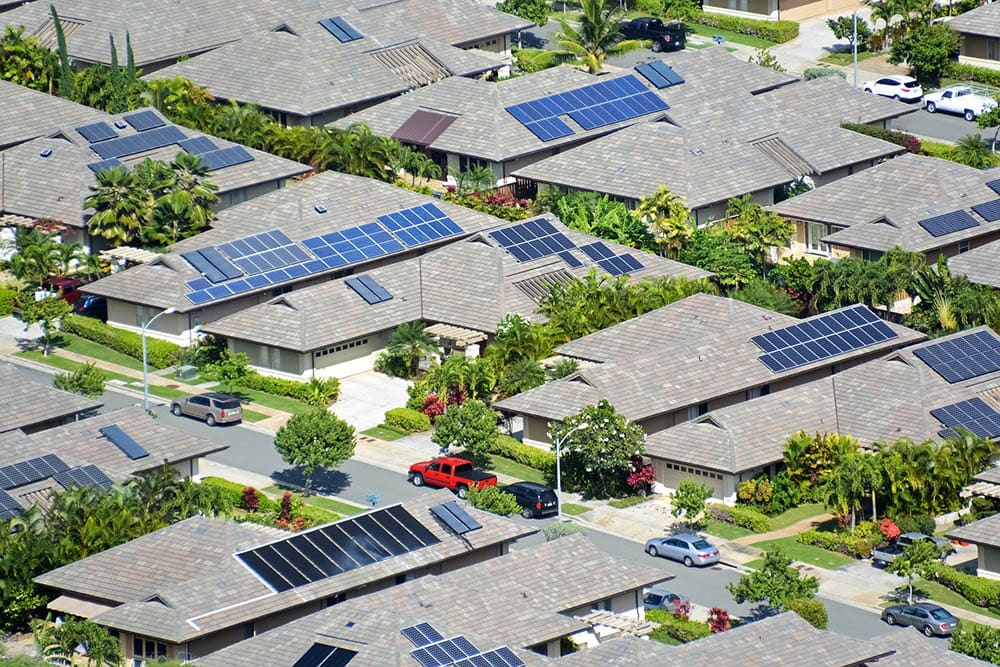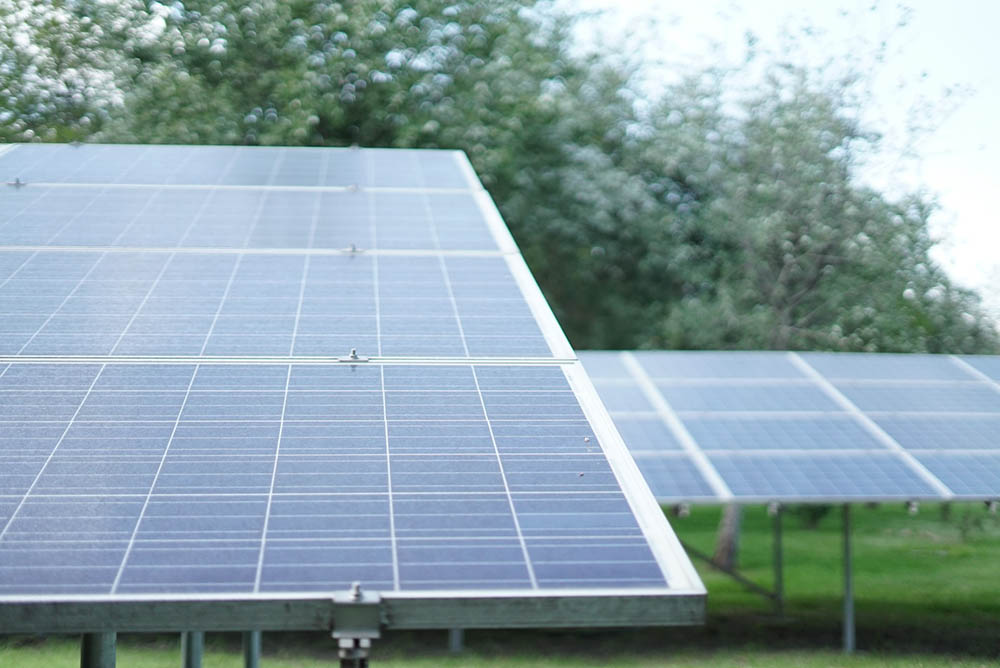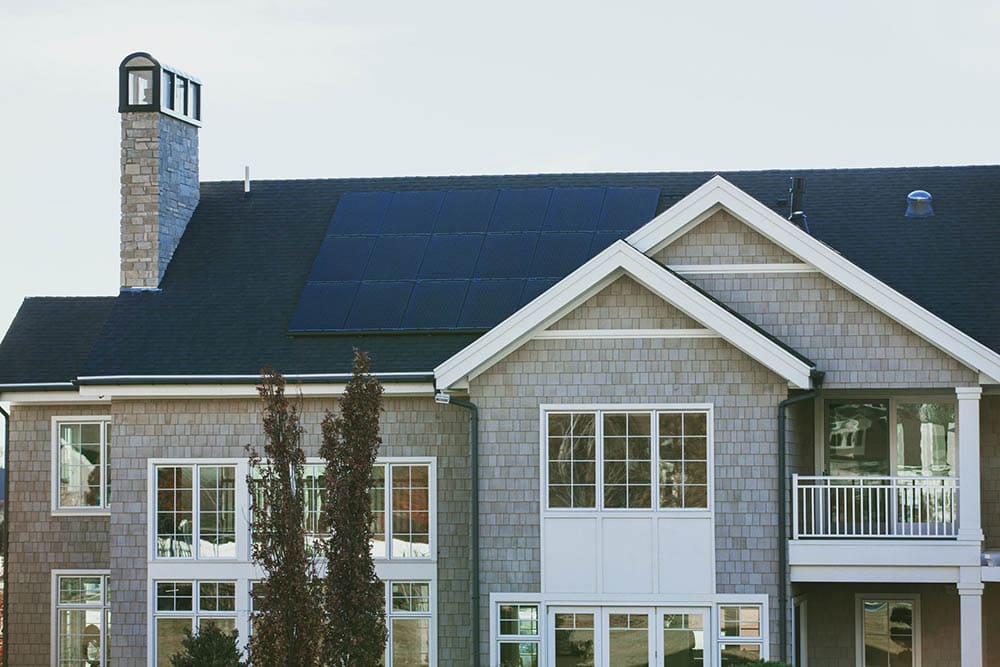Do Solar Panels Increase Home Value? Facts & FAQ
-
Codee Chessher
- Last updated:

Now more than ever, homebuyers are becoming more interested in homes that come equipped with solar panels. As solar technology matures and becomes more efficient, it’s a useful way to generate power as well as reduce reliance on the power grid.
What many homebuyers aren’t aware of is that solar panels increase the value of a home. According to a Zillow study1, homes with solar panels sell for about 4.1% more than comparable homes without solar panels.
The Office of Energy Efficiency and Renewable Energy, part of the U.S Department of Energy, estimates a typical home can rise as much as $15,000 in value2 after having solar panels installed.
Do Solar Panels Ever Lower Home Value?
Do Solar Panels Ever Lower Home Value? In practical terms, owned solar panels don’t lower the value of a property. However, leased solar panels typically don’t add value either and can sometimes complicate home sales if buyers are reluctant to assume the lease agreement. Educated buyers with a good grasp on the benefits of solar power will be willing to pay much more for a solar-equipped home.
What you need to look out for is how educated prospective homebuyers are in your area as far as the advantages of solar energy. If they’re not very well-versed in how it can help them or have no interest in solar energy, they may see solar panels as an inconvenience.
It’s somewhat similar to selling a home with a pool, where buyers may believe that they’d be responsible for upkeep and maintenance for an extra amenity they don’t necessarily want or need.
Owned vs. Leased Solar Panels: A Critical Distinction
When evaluating solar panels and home value, it’s crucial to understand whether the system is owned or leased, as this significantly impacts the financial benefits.
Owned Systems: When you purchase solar panels outright (either with cash or a loan), you receive all the financial benefits:
- The full 30% federal solar tax credit (expires December 31, 2025)
- State and local incentives
- All energy savings
- Increased home value (typically 4-5%)
- Full control over the system
Leased Systems or Power Purchase Agreements (PPAs): With leased systems, a third-party company owns the panels:
- The leasing company receives all tax credits and incentives
- You pay monthly lease payments (typically $50-$150)
- Your savings are reduced by lease costs
- The system does NOT increase your home’s value
- Selling your home may be complicated, as buyers must qualify to assume the lease
Currently, about 60% of residential solar installations in the U.S. are owned by homeowners, while 40% are leased or under PPAs. When we discuss home value increases and tax benefits in this article, these advantages apply only to owned solar systems.
What Types of Solar Systems Are Valuable For Home Value?
There are two main types of solar systems: grid-connected systems and off-grid systems. Each has different practical applications, not to mention differing upfront costs and limitations.
Grid-connected systems typically lack batteries and other storage solutions, using solar-generated power when it’s sunny. Any excess electricity that’s not used is sent back to the power grid, where it usually acts as a credit toward a home’s electricity bill.
When it’s not sunny and solar power can’t cover a significant amount of energy usage, the home uses electricity from the grid as usual. These systems are the most common type installed for residential homes.
Off-grid systems, by contrast, are installed in remote locations where it would be too cost-prohibitive to run power lines. Instead, these systems utilize batteries and other storage solutions to maintain a constant electricity supply. When it’s sunny, any electricity not used gets stored in batteries to be used when it’s not sunny.
Off-grid systems typically come with more sophisticated equipment to help monitor and regulate the system. Examples include meters, electrical instruments, power conditioners, and more.

Are Homes With Solar Panels More Valuable In Certain Areas?
Yes. As you might expect, solar panels are more useful in areas with lots of natural sunlight, like the Southwestern US, because they can generate much more electricity compared to, say, the cloudy Pacific Northwest. As such, you’ll see higher price differences between solar-equipped homes and homes without solar systems.
Similarly, homes with solar panels are more valuable in areas with high electricity prices because the electricity generated is literally worth more there.
Do You Save Money With Solar Panels?
The main question anyone will ask when you bring up the subject of solar power is: “Is it worth it? Do you really save money?” It’s a reasonable question considering that solar costs a steep amount upfront to get installed. People want to know they’ll get their money back on electricity costs, or else it’s just a hassle.
We’re happy to tell you, yes, you do save money by having solar panels installed on your home. Savings vary widely based on your electricity costs per kWh and the average amount of sunlight, but homeowners typically save between $1,500 to $1,800 per year on average, though this varies significantly by location. Areas with high electricity rates like California can see savings of $2,000+ annually, while areas with lower electricity costs may see savings of $800-$1,000 per year.
The payback period for owned solar systems typically ranges from 6-12 years, depending on your location, electricity rates, and system size. After the system pays for itself, the remaining 13-18+ years of the panels’ lifespan represents pure savings.
Also worth considering is how solar panels will affect your property taxes. As a rule, solar panels will increase property taxes. The good news is that many states are offering property tax exemptions on solar power installations to incentivize green energy.
As of 2022, there are 36 states that provide property tax exemptions for homeowners who install solar panels on their homes. Some also exempt the sales tax for the cost of the panels and installation.
On top of that, there’s currently a federal tax incentive available for anyone who installs solar panels on their home. The solar investment tax credit (ITC) allows homeowners to deduct 30% of the cost of their solar panels and installation from tax liability through the end of 2025. Oh, and it exempts the sales tax, too, in case your state or locality doesn’t already do that.
Important: These tax credits and incentives are only available to homeowners who own their solar panels. If you lease your panels or enter into a PPA, the leasing company receives these benefits, not you.

Do Solar Panels Require Maintenance?
A common question many homeowners have about solar is how much maintenance is required, because that would eat into energy savings.
Fortunately, solar panels are very low-maintenance. Short of a major freak electrical accident, the only upkeep you need to do is regular cleaning. Keeping solar panels free of dust, dirt, and other debris will keep them efficient and maximize how much power they generate.
If it helps, rain is usually enough to keep your solar panels free of most debris that could harm their efficiency. The only cases you’d need to fork out for professional cleaning are if you live in an area with lots of airborne pollution, heavy pollen, or little rain.
- Related Read: What Are Solar Panels Made Of? What You need To Know!
Featured Image Credit: Jeremy Bezanger, Unsplash
Contents
